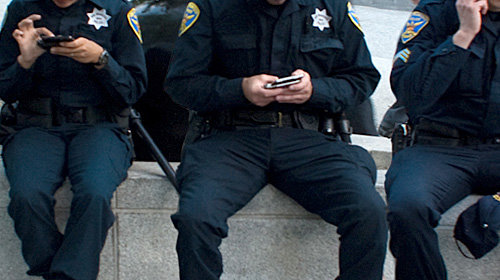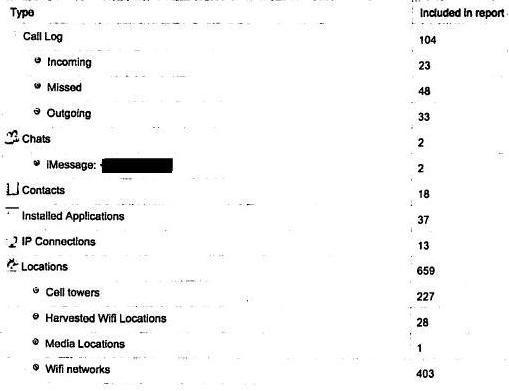Over the past few months, there’s been much talk in the news about the National Security Agency (NSA) and citizen’s privacy. The Internet age has left many susceptible to being watched, but what happens when a law enforcement agent gets hold of your cellphone? Finding out about you will be a lot easier for them.

(Image via ACLU)
A few months ago, the American Civil Liberties Union (ACLU) published a report supporting the case that law officials should obtain a warrant before confiscating and searching your cellphone.
As it turns out, cellphone searches are common among law enforcement today and as a result of advancing technology, law enforcement groups have access to a plethora of information that was not available in the days of pay phones.
So, what exactly can they find out?
In February, Immigration and Customs Enforcement Officers apprehended an iPhone from a suspect in a drug investigation. In just one data extraction session they found:
– Call log/activity
– Phone book contacts
– Saved voicemails and texts
– Apps
– Eight different passwords
– 659 geological points (including 227 cell towers and 403 Wi-Fi networks that allowed officers to acquire knowledge of which network the cellphone had been connected to previously)

An excerpt from the report of acquired data from the one cellphone. (Image via ACLU)
Although having your cellphone on hand can simplify the job of law enforcement agencies, they don’t need it to obtain the information they’re looking for. Mobile forensics companies such as Cellebrite make phone investigations a lot easier by downloading an iPhone’s existing, hidden, and deleted phone data. This includes call history, text messages, contacts, images, and geotags.
The download below shows just how invasive a cellphone search can be. It was submitted to a court in conjunction with a drug investigation.
Advertisement
Learn more about Electronic Products Magazine





